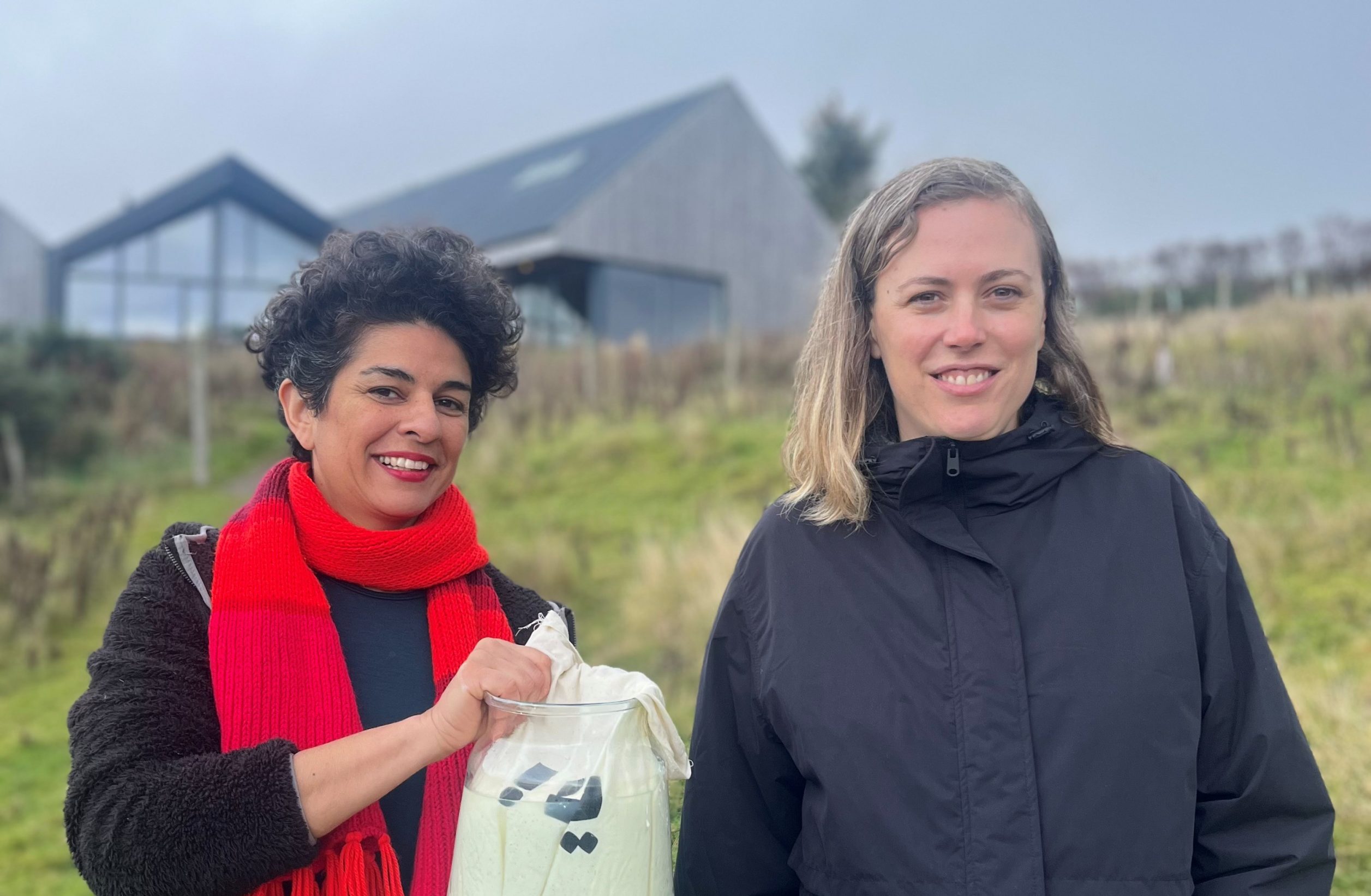Suraia Abud and Violaine Barrois
Visual Artist / Food Anthropologist and Culinary Artist
April-May 2026

- Visual Arts
- Chicago
“Through a sensory approach, we explore how the food practices of the Lebanese diaspora in Michigan weave deep connections between memory, territory, and cultural transformation.”
We are Violaine Barrois, visual artist, and Suraia Abud, food anthropologist and culinary artist. Our paths converge around a shared interest in the sensitive narratives of territories, collective memory, and the relationships between humans and the environment.
Violaine develops immersive installations and site-specific interventions that explore landscapes as spaces of memory, identity, and implicit knowledge, working in collaboration with environmental institutions and local communities, with a particular focus on the intertwined histories of pigments, trade, and power. She lives and works in the forest near Aix-en-Provence, where she is also engaged in civic initiatives.
Suraia, on the other hand, explores migrant food cultures, particularly through her research on the Lebanese diaspora in Latin America. She weaves together anthropology, writing, and culinary art to reveal the complex links between food, migration, economy, and family ties.
This residency offers us the opportunity to bring together our respective approaches by deepening the exploration of territorial narratives through the lens of ecological and food practices. We aim to create a transdisciplinary project that questions the ways of transmitting and inhabiting landscapes, intertwining embodied memory, everyday gestures, and ecological challenges. This work is intended as an invitation to rethink our relationship to the world and its stories through a collective approach rooted in the territory and its communities.
Violaine Barrois is a visual artist specializing in immersive installations that intertwine art, ecology, and the humanities. A recipient of several long-term residencies, including with Fluxus Arts Projects (2024), she develops projects in collaboration with environmental institutions such as the Port-Cros National Park and the Bureau des Guides GR2013.
Suraia Abud, a food anthropologist and culinary artist, is the author of Mezze Errante (2022) and has taken part in international residencies, including at Cove Park in Scotland and Matadero Madrid. Their joint work weaves together memory, culinary practices, and territories through a transdisciplinary approach.
Les Mémoires du Cèdre : Une cartographie des saveurs is a project we are developing at the intersection of anthropology, culinary art, and visual arts. Through a sensory approach, we explore how the food practices of the Lebanese diaspora in Michigan weave deep connections between memory, territory, and cultural transformation.
During our residency, we aim to deepen this sensory mapping of beloved places by collecting life stories, culinary objects, photographic archives, recipes, and gestures passed down through generations. Working with local materials—clay, kitchen ashes, plants—we will create ceramic pieces (plates, platters) incorporating organic elements. These objects, imprinted with portraits of Lebanese families in Michigan, will become tangible witnesses of both intimate and collective histories.
We envision an interactive installation in the form of a symbolic collective kitchen, a living space where memory, storytelling, and creation meet. We will also produce a residency notebook—a sensory atlas of beloved places—gathering maps, recipes, and reflections from the field. Finally, collaborative workshops will bring together artists, researchers, cooks, and community members, in partnership with the Arab American Museum.
Drawing inspiration from the writings of Joëlle Zask and Marcel Mauss, we question the kitchen as a mobile space of transmission and cultural resistance. Through this project, we seek to create a collective work where affective and culinary knowledge becomes material for creation, dialogue, and shared memory.
We chose the United States—and the state of Michigan in particular—because of the cultural, social, and historical richness of its Lebanese diaspora. With one of the largest Lebanese-American communities in the country, this region offers a particularly fertile ground to explore the connections between memory, migration, and culinary practices.
Our project will be anchored in Dearborn, home to the Arab American National Museum, a central partner in our approach. This institution is both a valuable documentary resource—notably through its archive library on Arab migrations—and a living space for exchange and creation. Its mission to highlight Arab-American cultures resonates deeply with our project, which seeks to bring forth a sensory and collective memory through objects, culinary gestures, and narratives.
We aim to meet people from different generations whose stories are tied, directly or indirectly, to Lebanon. Families, restaurant owners, artists, artisans, researchers, and cooks: we want to collect their testimonies, observe their practices, and reflect with them on the notions of authenticity, transmission, and cultural adaptation.
By visiting spaces such as family kitchens, restaurants, markets, and workshops, we will seek to understand how objects and places become carriers of memory and transformation. Michigan thus stands as a key location where our research can take shape, grow, and be shared.
In partnership with

European Institute for the History and Culture of Food

CREAD : Center for Research on Education, Learning and Didactics

Arab American National Museum


